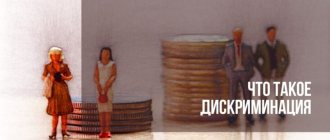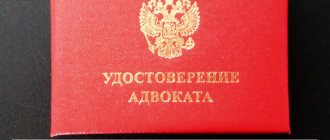Any discrimination that is applied towards an individual must be suppressed. That is why there is a special article about the infringement of human rights, violating which the offender will be punished. In the legislation of the Russian Federation, this concept is applied specifically and mainly includes two main ones: violation of interests at the level of the law and treatment of the victim as a separate social race.
To protect their own rights, each person can go to a human rights court and demand punishment for their offender.
How rights are violated
Despite the fact that many countries actively use the document, according to which a ban on cruel treatment of people is established, cases of violation of individual freedoms are still common. Infringement of human rights in the criminal procedural legislation of the Russian Federation indicates that confiscation of property or even a fine may be used as punishment. In Russia, facts have been recorded of the issuance of special acts that directly contain provisions that are not related to the Constitution; this indicates a direct violation.
Discrimination can be done out of thought.
Employers do not always discriminate deliberately; it often occurs through negligence and ignorance. First of all, it manifests itself in the establishment of different conditions for assigning bonuses, additional payments, etc. to employees of the same category. For example, in the wage regulations, the employer provided additional payment to women for child care benefits. And when a man with a child applied for such an additional payment, he was refused. The court considered this to be a manifestation of discrimination, since men and women have equal rights, and the right to receive child care benefits is also granted to men (fathers, guardians). Under such circumstances, the contested provisions of the employer’s local regulations (LNA) are discriminatory[3].
In another case[4], an employee was deprived of a bonus for the period worked only because he resigned of his own free will. True, there is an opposite example - the Appeal ruling of the Nizhny Novgorod Regional Court dated April 10, 2018 in case No. 33-3694/2018. And in the third dispute, the court found the conditions of the LNA to be discriminatory, lowering “bonus” points for an employee being “on sick leave”[5].
If employees have the same performance indicators, then selective bonuses are undesirable.
In general, it is dangerous to give bonuses only to selected employees if they and those deprived of bonuses have the same performance indicators (Appeal ruling of the Investigative Committee for civil cases of the Khabarovsk Regional Court dated January 16, 2015 in case No. 33-117/2015), and for employees of the same level with the same labor function to establish different conditions for the appointment of incentive payments (Appeal ruling of the Omsk Regional Court dated August 20, 2014 in case No. 33-5259/2014).
The court also recognizes as discriminatory an increase in wages only for workers of a certain category, for example, those who were not laid off, if the salaries of those who were “hit” remain the same (Cassation ruling of the Khabarovsk Regional Court dated October 7, 2011 in case No. 33-7279), and the payment of financial assistance only to members trade union (Appeal ruling of the Supreme Court of the Komi Republic dated June 20, 2013 in case No. 33-3285/2013).
“Belittling” of part-time workers is also common - they are deprived of the right to receive payments that “main” employees receive (Appeal ruling of the RF Armed Forces dated 04/06/2016 No. 2-APG16-2).
LNA should not be discriminatory and infringe on the rights of workers by abolishing or reducing the guarantees enshrined in labor legislation.
In second place in terms of the number of violations in this area is an incorrect understanding of the scope of the employer’s “legislative” powers and the establishment of working conditions that contradict federal legislation. The employer has the right, within its competence, to issue and adopt labor regulations (Articles 5, 8 of the Labor Code of the Russian Federation), but they should not be discriminatory and infringe on the rights of employees in comparison with what is provided for by labor legislation. For example, the court found the conditions of the LNA to be discriminatory that the day of discovery of a disciplinary offense is the day of listening to recordings of the registrar of official conversations, since this allows the employer to act arbitrarily and puts employees in an unequal position - depending on the discretion of the employer. Conditions are created for discrimination (Appeal ruling of the Supreme Court of the Republic of Khakassia dated 06/09/2015 in case No. 33-1546/2015). In this dispute, the employer would have avoided claims if he had established a clear procedure, terms and criteria for monitoring employees in the LNA (for example, determined when and how recordings were listened to, limited the period for identifying misconduct).
Rights
First of all, when we talk about the protection of human rights, the protection of the individual himself is mainly discussed. Controversial issues often arise that are related to the protection of the well-being of the individual, the health of individuals, the environment, as well as ensuring law and order. Let's consider the main points when human rights and freedoms are infringed:
- Any encroachment on the life of an individual can be regarded as a violation of inviolability.
- Particular attention is paid to the proceedings in court cases that are related to justice.
- Everyone has the right to participate in elections.
- In no case is it allowed either by the state or by other persons to prohibit expressing one’s thoughts or believing in one’s religion.
- Everyone has the right to express their own opinion.
- Everyone has the right to independently dispose of their property. Naturally, these are not all rights that can be infringed in some way, but even the smallest infringement must be punished, which is determined by the court.
Leave an employee without a lunch break
❌ Do not write down lunch time in the documents. Hold a meeting at lunchtime. Fail to provide a place to eat if there is a constant flow of customers in the room.
✅ During the day, the employee is entitled to a break for food and rest - Art. 108 Labor Code of the Russian Federation.
Lunch lasts at least 30 minutes, but no more than two hours. The exact time is prescribed in the employment contract or internal labor regulations. Rostrud fines if there is no exact time, floating lunches are not considered.
During the lunch break, the employee can go for a walk and go shopping. It is impossible to ban, this is his time - Art. 106 Labor Code of the Russian Federation.
Workers with a working day of less than four hours can be left without lunch. But if, according to the documents, he is there, he must be released.
A special case is when, due to the nature of the work, a person cannot tear himself away and go out to eat. In this case, the employer will organize a separate place for food and a short-term replacement by another employee.
Rights area
It should be noted that the areas of human rights have been developed in accordance with international standards, they include the following points:
- First of all, the area that the state must provide is taken into account. The population is provided with fundamental rights; no one has the right to carry out actions that in any way may infringe on the freedom and rights of persons with disabilities. It is important!
- The state must ensure full protection of its population and any infringement of human rights must be stopped immediately.
- Any activity that is aimed at violating the freedom of an individual must be immediately condemned and punished.
Whatever standards apply, they are universal and apply throughout the world, so every person should know their rights and actively use them if they find themselves in a difficult situation.
Article 136. Violation of equality of rights and freedoms of man and citizen
- home
- Laws and regulations
- Criminal Code of the Russian Federation
- Article 136. Violation of equality of rights and freedoms of man and citizen
Discrimination, that is, violation of the rights, freedoms and legitimate interests of a person and citizen depending on his gender, race, nationality, language, origin, property and official status, place of residence, attitude to religion, beliefs, membership in public associations or any social groups, committed by a person using his official position,
is punishable by a fine in the amount of one hundred thousand to three hundred thousand rubles, or in the amount of the wages or other income of the convicted person for a period of one to two years, or by deprivation of the right to hold certain positions or engage in certain activities. activities for a term of up to five years, or compulsory labor for a term of up to four hundred eighty hours, or correctional labor for a term of up to two years, or forced labor for a term of up to five years, or imprisonment for the same term.
Commentary on Article 136
According to the Constitution of the Russian Federation (Article 19), the state guarantees equality of rights and freedoms of man and citizen, regardless of gender, race, nationality, language, origin, property and official status, place of residence, attitude to religion, beliefs, membership in public associations, as well as other circumstances. Any form of restriction of the rights of citizens on the basis of social, racial, national, linguistic or religious affiliation is prohibited. Men and women have equal rights and freedoms and equal opportunities for their implementation. Established by Art. 19 of the Constitution of the Russian Federation, equality of rights and freedoms of man and citizen is the main object
crime under Art. 136 of the Criminal Code of the Russian Federation.
Optional objects can be honor, dignity of a person, his labor rights, freedom of religion, etc., i.e. those rights and freedoms enshrined in the Constitution of the Russian Federation in relation to which the equality of man and citizen is violated.
Speaking about the object of the attack, you should pay attention to the fact that the description of the act in the disposition of Part 1 of Art. 136 of the Criminal Code of the Russian Federation is structured in such a way that it covers not only the violation enshrined in Part 2 of Art. 19 of the Constitution of the Russian Federation, equality of rights and freedoms of man and citizen, in other words, equality of citizens, but also a violation of other constitutional rights, freedoms, as well as legitimate interests. Therefore, we can say that the title of Art. 136 of the Criminal Code of the Russian Federation “Violation of equality of rights and freedoms of man and citizen” is significantly narrower in this aspect of the content of the disposition of the norm, which speaks of a violation of not only the right specified in the title of the article, but also other rights and freedoms.
Objective side
Crimes constitute actions expressed in discrimination (violation) of the rights, freedoms and legitimate interests of a person and citizen depending on race, nationality, gender, language, etc.
A right is an opportunity established or sanctioned by the state to act in a certain (prescribed) way (to perform actions or refrain from performing them, to possess some value or benefit). For example, the right to life, to personal and family secrets, etc. The presence of a right in one of the subjects of legal relations corresponds to the obligations of the other subject of legal relations to facilitate the implementation of the existing right or not to impede its implementation. The existence of a right is supported by the state, which means establishing any negative consequences for an entity that has violated the right of another entity.
Freedom is the ability established by law for a person to act (inaction) at his own discretion, to choose this or that behavior. Like law, freedom is supported by the power of the state to refrain from violating it or applying punishment for violating the freedoms of man and citizen. For example, in accordance with Art. 28 of the Constitution of the Russian Federation guarantees freedom of conscience and freedom of religion to everyone. Violation of these freedoms may entail criminal liability (Article 148 of the Criminal Code of the Russian Federation).
Disposition Art. 136 of the Criminal Code of the Russian Federation includes an additional element of the legal status of a person and citizen, which is not reflected in the Constitution of the Russian Federation - these are legitimate interests (Chapter 2 of the Constitution of the Russian Federation speaks only about the rights and freedoms of man and citizen). Legitimate interests represent an opportunity established by law to realize any interest or acquire a benefit. Legal interest differs from law in that the realization of interest and the acquisition of goods depend not only on the will of the subject himself, but also on the occurrence of any legally significant facts, the will of other subjects of legal relations. For example, practically as a legitimate interest it is formulated in Part 3 of Art. 43 of the Constitution of the Russian Federation the right (in this case, the opportunity) to receive higher education free of charge on a competitive basis at a state or municipal educational institution and enterprise. The realization of this interest is possible subject to competitive selection.
Understanding the content of the concepts discussed is important for the correct qualification of acts, since they help determine the scope of damage.
At the same time, speaking about the scope of damage, one should pay attention to the fact that in the disposition of Part 1 of Art. 136 of the Criminal Code of the Russian Federation, the violated rights, freedoms and legitimate interests are not limited only by the framework of the Constitution of the Russian Federation. The only constitutional right that is specified in the norm in question is the equality of rights and freedoms of man and citizen established by the Constitution of the Russian Federation (equality). Other rights, freedoms and legitimate interests referred to in the disposition of Part 1 of Art. 136 of the Criminal Code of the Russian Federation, can be either constitutional or unconstitutional, but a constructive feature of the crime under consideration is the obligatory presence of a violation of equality.
The types of violations can be diverse and depend on the nature of the violated right, freedom, legitimate interest, but, from our point of view, all of them can be united by the concept of obstruction in the implementation of an existing right, etc.
Discrimination can be expressed in dismissal from work (for example, when cutting jobs), refusal to hire, non-enrollment or expulsion from an educational institution on the basis of nationality or gender, language, religious beliefs, etc., giving preference to others persons (of another nationality, gender), while objectively another citizen had an advantage and should have been hired for work or study. Discrimination may also consist of refusal to provide information, refusal to sell goods, perform work or provide services, etc. for the same reasons, etc.
In case of discrimination, it is the characteristics of gender, race, nationality, language, origin, property or official status, place of residence, attitude to religion, beliefs, membership of public associations, and not individual qualities, that become the basis for resolving the relevant issue.
Violation of the rights, freedoms and legitimate interests of a person and a citizen, depending on other circumstances or on other grounds, does not form the crime under consideration.
The difficulty of qualifying a violation of the equality of rights and freedoms of man and citizen is that this violation is always expressed in the violation of not one, but at least two rights. The first is always a violation of equality, the second is a violation of another right, freedom, legitimate interest. This is due to the fact that a violation of equality cannot be committed in itself, regardless of the other right being violated. In other words, a violation of equality must be expressed in something, and it can be expressed in a violation, for example, of the rights mentioned above.
In this regard, the question arises about the legal assessment of the act in the following cases. First. An infringement was made on the equality of citizens by violating an unconstitutional right, for example the right to purchase goods (the purchase and sale agreement for the last available copy of the goods was concluded not with the victim, but with another person who was given preference on the basis of nationality). In this situation, it seems that the act should be qualified only under Part 1 of Art. 136 of the Criminal Code of the Russian Federation, since liability for violation of the second right is not established by criminal law. Second case. An attack on the equality of citizens was carried out by unjustifiably refusing to hire a woman on the basis of her gender. Thus, the constitutional right to freedom of labor is violated (Article 37 of the Constitution of the Russian Federation). Criminal liability for unjustified refusal to hire is established by Art. 145 of the Criminal Code of the Russian Federation. In this regard, in the second case, the act consists of a violation of equality (Article 136 of the Criminal Code of the Russian Federation) and an unreasonable refusal to hire (Article 145 of the Criminal Code of the Russian Federation). Violation of each right is provided for in a separate article of the Criminal Code of the Russian Federation. Therefore, the question arises about the presence of a set of crimes or its absence, since Art. 136 of the Criminal Code of the Russian Federation can be considered as general in relation to Art. 145 of the Criminal Code of the Russian Federation. From our point of view, in such cases we can talk about the presence of a set of crimes, since one action violates various constitutional rights and freedoms, there are various direct objects, each of which is protected by an independent article of the Special Part of the Criminal Code of the Russian Federation.
The elements of violation of equality of rights and freedoms of man and citizen are formal. The crime is considered completed from the moment the action is carried out, limiting equality on the grounds specified in the law, regardless of the consequences. At the same time, it should be noted that in practice, often in actions regarding violation of equality of rights and freedoms, no corpus delicti is found due to the insignificance of the act (Part 2 of Article 14 of the Criminal Code of the Russian Federation).
Subjective side
crimes are characterized by guilt in the form of direct intent. The offender is aware that he is carrying out actions that violate the rights, freedoms and legitimate interests of a person depending on his gender, race, nationality, language, origin, property and official status, place of residence, attitude to religion, beliefs, membership in public associations or what -social groups, and wants to fulfill them.
Motive
crime is associated with the signs specified in Art. 136 of the Criminal Code of the Russian Federation. Equality is violated due to hostility, anger, malice, etc., i.e. an unfriendly attitude towards a person because of his nationality, race, gender and other characteristics.
Subject
crime - a sane person who has reached the age of sixteen. The subject is general.
Part 2 of Art. 136 of the Criminal Code of the Russian Federation establishes liability for the same act committed by a person using his official position. In a qualified composition, the subject of the crime is a special one. These can be both officials of state authorities or local self-government or enterprises and organizations under their jurisdiction, as well as employees of non-state (commercial) institutions and enterprises with administrative or other managerial functions that allow them to infringe on the equality of citizens (for example, illegal appointments to higher positions of their fellow countrymen, establishing increased salary bonuses for employees of a certain nationality, etc.).
It should be noted that when using the concept of “official position”, the legislator does not limit it only to persons with official powers or managerial functions. The concept of use of official position is broader, but in this case, a violation of equality of rights and freedoms is most likely on the part of either officials or persons with managerial functions. But in any case, the subject of a qualified crime is special, and for this composition there must be a connection between the official position and the committed act.
Abuses by officials of state authorities or local self-government that violate the equality of citizens are classified according to the totality of the crimes provided for in Part 2 of Art. 136 and art. 285 or Art. 286 of the Criminal Code of the Russian Federation. Similar acts by employees of commercial structures are covered by Part 2 of Art. 136 of the Criminal Code of the Russian Federation.
Violation of the equality of rights and freedoms of man and citizen (Article 136 of the Criminal Code of the Russian Federation) must be distinguished from incitement of national, racial or religious hatred (Article 282 of the Criminal Code of the Russian Federation). This crime is characterized by a violation of the equality of citizens (Article 136 of the Criminal Code of the Russian Federation), but is aimed not at inciting national, racial and religious hatred, but at humiliating national dignity.
Constitution and laws
The Constitution of Russia clearly states that every person living on the territory of the Russian Federation or temporarily staying there must count on the protection of his rights and freedoms. The documentation that was adopted by the Council of Europe is also additionally taken into account; it establishes principles regarding the collection and transfer of information that is of a personal nature. For example, any data that was received confidentially should not be disseminated under any circumstances; it is of a secret nature. It is important to remember that all acts adopted by the UN and the European Council are necessarily considered at the level of international standards. If human rights are violated, an article of the Criminal Code is not the only document that is used for protection. Special attention should be paid to the declaration. Back in 1948, the Universal Declaration was adopted, which protects the rights of every person. Let's look at the basic rights that are included in this document:
- Everyone has the right to life and their integrity.
- There is a right to recognition of subjectivity.
- Under no circumstances may torture or ill-treatment be used against a person, and the dignity of the individual must not be humiliated.
- Everyone has the right to equal protection.
- In no case can slavery and servitude be applied to a person.
- The declaration also describes that a person has the right to have a private personal and family life, as well as the inviolability of home and correspondence.
Rights that have been violated for some reason must be fully restored, and the person or group of people who committed this violation must be punished.
Required to undergo a polygraph test
❌ Put the employee in a situation where he cannot but agree to undergo a lie detector test. If it turns out that he is stealing or leaking information to competitors, deduct the shortfall from his salary, fire him under the article, or hint to write a statement on his own.
✅ It is believed that a polygraph based on bodily reactions can show whether a person is lying or not.
Polygraph testing of employees is not prohibited. Drawing conclusions and taking measures, in principle, too. But there are two legal requirements here.
The employee must consent to the inspection . A polygraph test is essentially a medical examination. It can only be carried out with the consent of the person. This is stated in Art. 21 of the Constitution of the Russian Federation.
Consent must be voluntary. That is, the employee signs it without pressure. It is also impossible to cheat and offer to sign consent for “psychological testing”. The employee must clearly understand that he is agreeing to a device with wires connected to the body and specific questions. An employee can refuse the test at any time, even in the middle of the survey. You cannot fire, fine or deduct from your salary the costs of visiting a polygraph examiner.
If an employee proves in court that he agreed to a polygraph under threat of dismissal or bad recommendations for HR, the employer will pay for moral damages. The chance of proving coercion is high. The courts interpret any doubts in favor of the employee.
A polygraph test should not replace an explanatory note, an audit, a damage report, a memorandum and a court verdict . The results of a polygraph test do not legally prove that the employee violated the law. The Labor Code does not know such a procedure. If an employee challenges dismissal or deduction from wages, it will not be possible to refer to a polygraph. In legal parlance, this is called inadmissible evidence.
To make deductions from wages, you must follow the procedure for bringing to financial liability from Chapter 39 of the Labor Code of the Russian Federation. This is the creation of a commission, calculation of damages, an explanation from the employee and an order to withhold. Full step-by-step instructions are in our article.
To fire someone for theft, they turn to the police and wait for a court verdict. This is what it says in Part 6 of Art. 81 Labor Code of the Russian Federation.
For leaking trade secrets, absenteeism and drunkenness, one is fired after filing a disciplinary sanction under Art. 193 Labor Code of the Russian Federation. Instructions here.
Violation of social rights. The essence
Violation and infringement of human rights can also relate to socio-economic discrimination. As a rule, such an offense is directly related to a property issue and to resolve the problem, it is often necessary to resort to court. Social rights include:
- Every person living in the territory of the Russian Federation has the right to acquire his own property.
- A person can freely engage in the work activity that suits him.
- Complete freedom of economic activity is ensured.
The Constitution strictly prohibits forced labor. Everyone can choose the most suitable profession and occupation for themselves.
Civil law. Provisions
The article “infringement of human rights” mainly protects the civil position. What does it mean? The fact that it is this category of rights that protects the person as an individual:
- First of all, everyone has the right to life.
- No one can infringe on the honor and dignity of an individual.
- Every citizen and person simply staying on the territory of the Russian Federation can move freely throughout the country.
- Any person has the right to independently choose a place to live.
- No one has the right to cruelly treat another person, and if this happens, the guilty party must be punished.
- Everyone has the right to think freely, choose their religion and act according to their conscience.
- The citizen is provided with protection of his life and his family.
In fact, there are a large number of such rights, but only the main ones are listed above.
fine
❌ Fining workers for shortages, being late, talking with a client not according to the script. The amounts of fines are withheld from wages.
✅ You can maintain discipline and punish staff only in three ways from Art. 192 of the Labor Code of the Russian Federation: reprimand, reprimand and dismissal under the article. And money for shortages and broken furniture must be deducted according to the rules on financial liability from Art. 238 Labor Code of the Russian Federation.
Employees cannot be fined. We have already talked about this in our article.
Both for the ornate system of fines and for a one-time punishment, the employer himself risks receiving a fine from the Rostrud inspector. And from the employee - a claim for the recovery of wages lost due to fines.
What are the restrictions?
In addition to the fact that the Constitution deals with the infringement of human rights, there are certain restrictions, which make it possible to determine the level of freedom of a citizen in the state in which he resides. With the help of such restrictions, certain boundaries are established. Which, for example, allow people with disabilities to freely enjoy their rights and freedom. Rights can be limited only if there are some grounds for this. For example, such measures may be used to protect the Constitution, health or moral character, to ensure the defense of the state. But despite this, some rights still cannot be limited, such as:
- The right to live.
- Inviolability of personal life position.
- An attack on dignity.
- Guarantees that directly relate to privacy information.
- Freedom of the right to have your own property and engage in entrepreneurial activity.
As a rule, restrictions are needed to ensure the activities of law enforcement agencies.
Force you to work overtime, on weekends or at night
❌ Transfer the employee to the night shift, force him to stay late, schedule inventory for the weekend. You agree not to ask for consent, not to pay extra for processing.
✅ The employee must be at work during the hours specified in the employment contract and labor regulations. Working hours should not exceed 40 hours per week - Art. 91 Labor Code of the Russian Federation.
To work beyond the norm, written consent is taken from the employee and added to the salary.
Overtime is working after a shift, working an extra shift, or working on a weekend. Duration is limited: no more than 4 hours per two weeks and 120 hours per year. The rule is from Art. 99 Labor Code of the Russian Federation.
Recycling itself is not prohibited. But there must be a goal: unload perishable food, replace a barista who is absent, repair a broken pipe. Pregnant women and minors cannot be involved in additional work. And disabled people and mothers of children under three years old can refuse.
They pay extra for overtime work. In the first two hours - one and a half times more, in the subsequent hours - twice as much. Instead of additional payment, the employee can choose a day off - Art. 152 Labor Code of the Russian Federation.
At night they work from 22 to 6 o'clock. The night shift is one hour shorter than the day shift. For a one-time night out, written consent is taken from the employee. To completely transfer an employee to night mode, an additional agreement is drawn up to the employment contract. Details - in Art. 96 Labor Code of the Russian Federation.
Each hour of night work is paid 20% more.
Often it is written into the employment contract that the working hours are irregular. This means that an employee can sometimes be left behind after a shift and required to go on a day off. There is no need to take written consent. The amount of additional hours is recorded in the employment contract.
If processing falls on a weekend or holiday, the payment is doubled. Or, at the request of the employee, the bonus is replaced with an extra day off. Rules from Art. 153 Labor Code of the Russian Federation.
Punishment for discrimination
If a violation of human rights occurs, an article of the Criminal Code of the Russian Federation provides for punishment for the crime committed. Let's consider all the options that are used as punishment:
- First of all, it is worth remembering that you will have to pay a fine of 100,000 rubles.
- If the crime was committed by an official, then there is a risk of losing the right to hold office for a period of 5 years.
- Sometimes correctional labor is used as punishment; it can last 480 hours.
- If discrimination against a person occurs with particular cruelty, correctional labor may be imposed for a period of 2 years.
- The perpetrator may be imprisoned for 5 years.
Infringement of human rights can be considered in open court, and taking into account judicial practice, strict measures are taken against the violator.
Do not index salaries
❌ Hire an employee, set the salary and not raise it for years. Or raise, but for increased responsibilities or career growth.
✅ To prevent employees from suffering from inflation, employers are required to periodically index wages. This is the obligation from Art. 134 Labor Code of the Russian Federation.
Wage indexation is an increase based on the increase in retail prices for goods and services. At the same time, the employee continues to perform the same work.
For civil servants, indexation is prescribed by law. But private owners must decide for themselves how often and by what percentage they will index staff salaries. The procedure is prescribed in the employment contract or local act, for example, the regulation on salary indexation. If the order is spelled out, that’s half the battle. All that remains is to comply with it and increase your salary on time.
If the employer has not set the terms and amount of indexation, this is not a reason not to carry it out. You can take any frequency - once every six months or a year. The increase factor can be calculated based on the consumer price index for the previous year. For example, for 2022, inflation was approximately 5%. You can increase your salary by that much.
Regular bonuses and allowances do not replace indexation. These payments are included in the wage system. They depend on the quality and quantity of work, and rising food prices have nothing to do with it. This is the position of the Supreme Court of the Russian Federation from Determination No. 89-KG18-14.
You can index the salary or the variable part of the salary - for example, a percentage of sales. The main thing is that in the end the real amount of wages increases.






